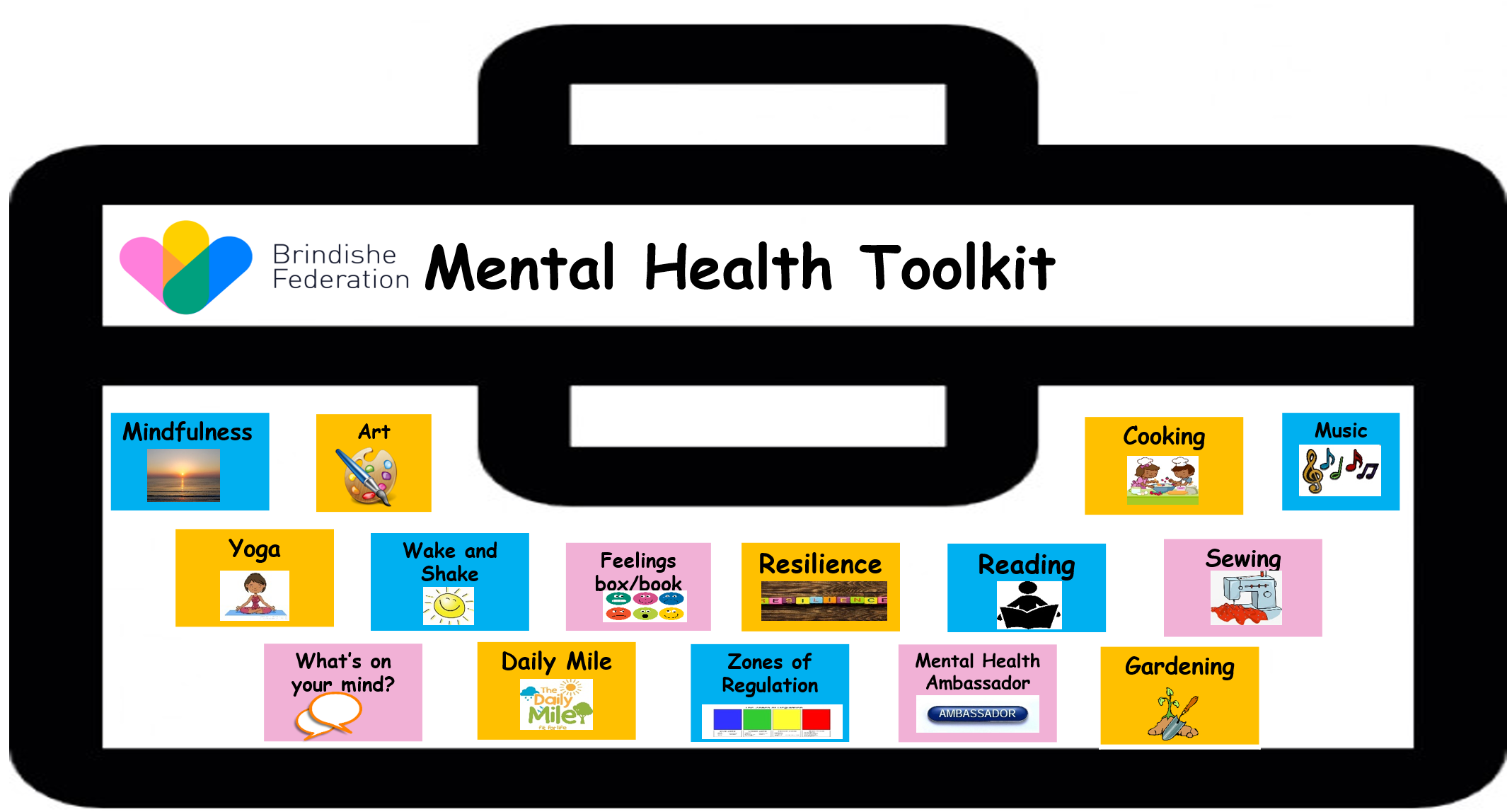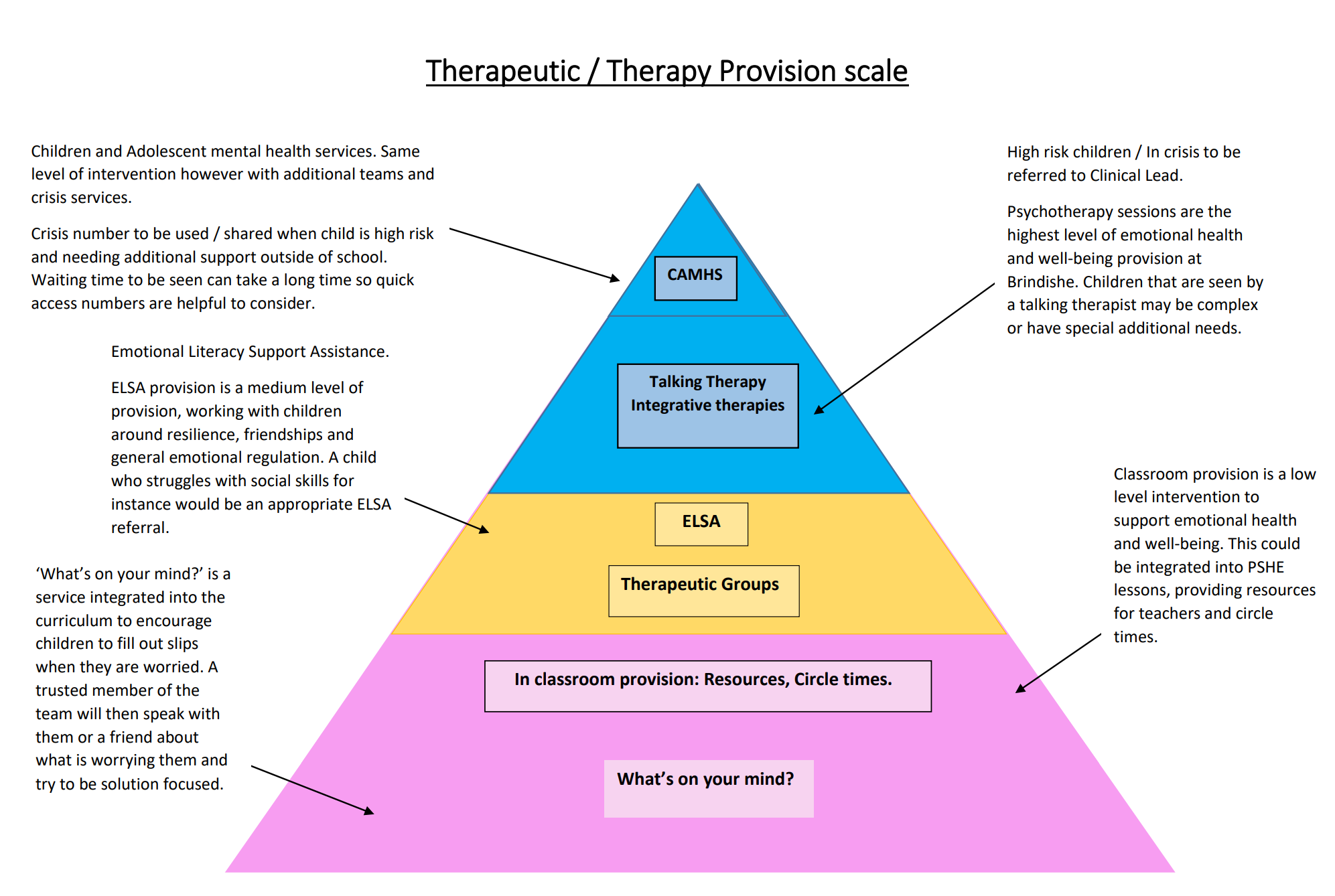Social, Emotional and Mental Health
At Brindishe Schools, we are committed to supporting the emotional health and wellbeing of our pupils and staff. We have a supportive and caring ethos, where each individual and contribution is valued. In our schools we know that everyone experiences life challenges that can make us vulnerable and at times, anyone may need additional emotional support. We take the view that positive mental health is everybody’s business and that we all have a role to play.
At Brindishe Schools we:
- help children to understand their emotions and feelings better
- help children feel comfortable sharing any concerns or worries with their trusted adults in school
- help children socially to form and maintain relationships
- promote self-esteem
- encourage children to be confident
- help children to develop emotional resilience
We promote a mentally healthy environment through promoting our school values and encouraging a sense of belonging. Pupil voice is key and opportunities to participate in decision-making through our Rights Respecting Teams. We celebrate academic and non-academic achievements and provide opportunities to reflect.
Brindishe Schools recognise Mental Health Awareness Week every year hosted by the Mental Health Foundation. This is an annual event when there is an opportunity for the whole of the UK to focus on achieving good mental health.
Click here for further information on The Mental Health Foundation
We have a wide range of strategies and/or interventions in school daily to support children with their own mental health. Children are encouraged to 'dip into' their Mental Health Toolkit with school adults to find a strategy to support them.

Brindishe Schools Mental Health Offer

Play Therapy at Brindishe Federation
Schools play a crucial role in a child’s development and well-being. At Brindishe Green, Brindishe Lee and Brindishe Manor, academic education is provided and they are also nurturing environments for children’s social and emotional growth. Play Therapy, which is a specialized, effective and developmentally appropriate form of therapeutic intervention is accessible to the children attending all 3 schools through the Brindishe Federation’s BAPT (British Association of Play Therapists) Registered Play Therapist.
What is Play Therapy?
Play Therapy is specially for children, and the room is is a safe, supportive space with toys, art materials and games where children can explore their feelings, thoughts and experiences using play. Instead of talking about the things that are confusing or worrying them, they get to play whilst exploring these issues. Children tell us about their inner world whilst playing long before they are able to link words to their experiences using language. Play Therapy encompasses many approaches, but the foundation of all approaches is child-centred.
Indications for referral to Play Therapy
In play, children can safely experiment and master different skills and experiences. They form a sense of who they are, whilst learning to understand that other people can be different from them. Relationship skills, such as being able to trust, respect, empathise, share and co-operate with people, can be developed through play.
Play Therapy has been proven to be effective in addressing a range of difficulties, including those related to: Adoption and Fostering, Attachment and Trauma, Abuse, Anxiety, Bereavement, Bullying, Emotional and Behavioural Regulation Difficulties, Family Breakdown, Friendship Difficulties, Illness, Low Self-esteem, Nightmares, Physical Regulation Difficulties, i.e., Sleeping, Eating and Toileting and Social Withdrawal among others.
Benefits of Play Therapy in Schools
Play Therapy, therefore, is a form of counselling for children that builds on this developmentally appropriate form of communication through play. It enables children to explore difficult experiences in a safe environment. The trust, acceptance, boundaries, modelling and reflectiveness of the Brindishe Federation’s BAPT Registered Play Therapist working alongside a child playing can enable them to:
- Feel more confident in expressing their thoughts and feelings
- Develop their emotional vocabulary by accessing the language the Play Therapist relates to their experiences
- Develop more socially appropriate behaviour
- Improve their self-image and self-esteem
- Improve concentration and organisation
- Become more confident and creative in their play